EGOISTICALLY BASED MORALS: A NEW CONTENT FOR SUPEREGO
Abstract. The first part of the article regards the main components of the psychoanalytic structure of personality (consisting of Id, Ego and Superego) and their interaction. The author of the manuscript shows that an intrapersonal (neurotic) conflict often appears as the result of the too strong Superego pressure towards Id drives. According to the author’s hypothesis, this occurs because individual Superego acquires tough anti-egoistic intentions under the influence of non-adequate assimilation of the main moral norms and demands. Thus, satisfaction of the fundamental needs of the organism becomes blocked to the substantial degree. Further discussion deals with the analysis of the egoism concept. Attitude towards egoism is characterized by confusion, strong ambivalence in humanitarian sciences and human consciousness. The author makes a conclusion about great contradiction existing between the ancient and unchangeable moral norms with the modern scientific views on human nature and society.
Key words: altruism, morality, psychoanalysis, religion, self-realization, happiness, egoism.
Levit Leonid – Doctor of Psychology, Associate Professor, the Director of the Center for psychological health and education, Minsk, Belarus
e-mail:
